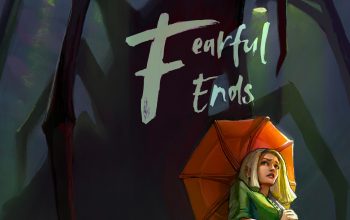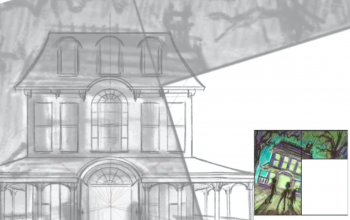I had a great time on my panel at PAX East yesterday, and I really appreciate everyone who came out to see it. For those who didn’t, you can see the whole thing here (skip to 5:50:00). We also got a little coverage from polygon.com, which is pretty darn exciting. It’s my first experience being directly mentioned by the press, and my first experience being misquoted by the press. Still, for a tiny group like us, any coverage is good coverage.
I didn’t want to comment on that site or nit-pick the misquote, but the more I thought about it the more I wanted to expand on what I was getting at, and what better place to do so than my own blog? Isn’t that kind of navel-gazing exactly what having a blog is all about? But seriously, the question that spurred the comment is one that as a professional game developer I get all the time: “How do I get a job in the game industry?”
The answer really is “just make a game.” I don’t mean to be cavalier about the difficulties in making a full on video game here. I’m not saying you should strike out on your own and make a stellar AAA title ready for sale to the public either. But you can’t expect to get a gig in the game industry if you have absolutely no idea what making games entails. Would you hire a carpenter who had never used a hammer before, but is eager and willing to learn how to do so on the job?
Sit yourself down and try to make something. It doesn’t have to be something impressive or even get to completion. What I was trying to say at the panel is that you should try to make a Tetris clone, or just try to make a text based tic-tac-toe game. See how far you can make it. There are so many benefits you’ll get from the experience:
- You’ll learn so much. You’ll understand better what goes into make a game, that at least half if not more of making a game is not the game itself, it’s the other stuff: the menu screens, the save/load features, the installer, etc.
- It shows drive. Potential employers (and I’m one of them, so trust me on this) will absolutely favor resumes where there’s a link to a little project you did on the side. Yeah, it helps if it’s actually good, but just having that entry on your resume will get you shuffled closer to the top.
- It’s something to talk about on interviews. And not just filler, but stuff relevant to the position you’re trying to get. The people interviewing you have been through all the trials you have in your project, and if you can talk about such things in an informed way it will really help you stand out.
And while my advice here is skewed towards engineering candidates, I think it applies to everyone. If you’re a designer, make a level for your favorite game that has a level editor. If you’re an artist, try to re-skin an existing game. Just getting practice at the kinds of tasks you’ll be assigned on the job is worth its weight in gold. Plus there’s always the chance that you’ll discover you hate the work, and if that’s the case, you can save yourself from a long and agonizing job hunt and possibly an unpleasant working experience.
So that’s what I”m getting at when I say “just do it, just make a game.” I was reading Kevin Smith’s book “Tough Sh*t” recently, and it turns out he has the same advice for potential filmmakers. He says don’t just say “I want to be a filmmaker”, be a filmmaker. (Now here I am probably misquoting Smith, as I don’t have his book right in front of me. What goes around comes around I suppose.) I wouldn’t be surprised if it’s the same for any kind of creative work. It’s pretty easy to just sit around and say “I want to be…”, while actually, it’s not as hard as you think to just do it.



“Just make a game.”
Heh, that reminds me of that story you told me about Ken St. Andre’s (I think.)
response to someone’s question about “How do I make my character a thief in your game?”
His answer: “Steal something.”
Glad your panel went well, I was thinking about you yesterday. Tryin’ to send good vibes.
Now on to HelgaCon!